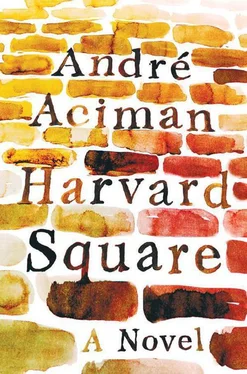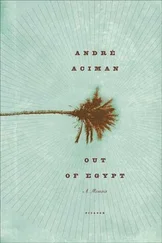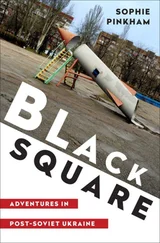“Oh, La Princesse de Clèves , it’s been ages,” said Lloyd-Greville’s guest.
“I’ve just reread it,” added Lloyd-Greville’s wife. Trying to earn points, was she? A moment of silence passed over all five of us.
“Would you like a glass of wine?” asked the professor, almost standing up to make room for an extra chair in case I was going to be gauche enough to accept. I hesitated, and was practically tempted to give the matter a second thought, when I caught Mrs. Lloyd-Greville slicing a corner off her artichoke heart, as though she had totally failed to notice her husband’s gesture and was already assuming I would turn down the offer and let the four of them return to their meal without further intrusion from this graduate student who had shown up at the wrong time and wasn’t going away fast enough. I apologized before declining — I was with friends in the small bar. “Ah, youth!” they said in a chorus. Then, with one or two nodding motions meant to signify something I wasn’t quick enough to catch, they returned to their oversized appetizers. A moment of silence passed. Then it hit me: I was being congédié , dismissed. Very cordially, the little clan had bolted its door in my face.
I had never even wished to join them but I suddenly understood why people burst with road rage, brandished Kalashnikovs, and mowed down real or imagined foes, it didn’t matter which, because no one was your friend here, and bunk was forever closing in on you, no matter where you turned. Bunk, their foodie palates; bunk, La Princesse de Clèves ; bunk, their venomous little white canines darting from behind their puckered smiles as they nodded goodbye and savored their fried Carciofi alla giudía that would turn cold if they didn’t gobble them up right away while I stood there trying to negotiate a gracious exit. Why was I being reminded that I was a hopeless, feckless, unkempt, unwelcome, and thoroughly unfit waif on this niggardly strip of earth called Cambridge, Mass.?
I would never forgive them, never forgive myself. Why ask me to their table, why overstay my welcome, why couldn’t I read the signs? Kalaj would surely have known how to read the signs.
I was, it occurred to me, no different from Kalaj. Among Arabs he was a Berber, among Frenchmen an Arab, among his own a nothing, as I’d been a Jew among Arabs, an Egyptian among strangers, and now an alien among WASPs, the clueless janitor trying out for the polo team.
I hated everything this side of the Atlantic.
Come to think of it, I hated everything that side of it as well.
I hated America, I hated Europe, I hated North Africa, and right now I hated France, because the France everyone else worshipped in Cambridge wasn’t the imagined douce France I’d grown up loving in Egypt, a France of Babar and Tintin and illustrated old history books that always started with Caesar’s ruthless siege of Alessia and ended with the heroic battle of Bir Hakim between French legionnaires in North Africa and the German Reich — a France even the French no longer cared for, much less remembered. France had become jumbo-ersatz as well, a gourmet haven for puckered lips and highborn gluttons.
A decade ago, I began thinking, none of them were good enough to step into my parents’ service entrance; now they were snubbing me with a ghetto dish my grandmother wouldn’t be caught dead serving to her guests. Artichokes à la Jewish!
The thought might have brought a smirk to my face, but it couldn’t soothe me. I might as well have been barking jumbo-ersatz at the poor artichokes themselves and their distant cousins the nectarines, before grabbing each choke on their plates and forcibly stuffing them into Mrs. Lloyd-Greville’s leering kisser and down her dewlapped bill.
I knew I was beginning to sound like Kalaj. I liked sounding like him, I wanted to sound like him. I liked how it felt. He was the voice of my anger, my rage, a reminder that I hadn’t imagined the insult tonight, even when I knew no insult was intended. I was bruised all over and yet no one had cut or meant to injure me. Still, I liked mimicking his rage, liked wearing it. As senseless as it was, it made me feel stronger, made things simpler, gave me courage, and filled my chest. It reminded me of who I was here. I had for so long stopped knowing who I was that I needed a total outcast to remind me that I was no nectarine, that not being able to graft oneself onto this society came with a price but was not a failure.
I wanted to shout out the words. Nectarines ersatz, nectarines ersatz!
I went to the bathroom and as soon as I had shut the door read the prophetic inscription over the urinal: I’m OK, you suck .
Everyone sucked. Everything sucked. The world sucked. Kalaj sucked. I sucked.
WHEN I RETURNED to our table, Kalaj had already managed to invite the woman sitting next to us to our table — or, rather, he had asked her to move over to his spot on the cushioned bench and come closer to him. “You’ll have to forgive me,” he whispered when he pointed to my books, which now stood in a neat pile on the far corner of his table, “but I think it’s time we separated.”
I was obviously cramping his style. Perhaps I was a touch stung, but I liked the honesty. It confirmed our camaraderie. He was a survivor. Tonight he wasn’t sleeping alone. He reminded me of hunters, who wake up at dawn and are determined to forage for food and won’t come back till they’ve dragged a fresh carcass to feed their clan on. I was a gatherer: I waited for things to grow, to come my way, to fall into my hands. He went out and grabbed; I stayed put. We were different. Like Esau and Jacob.
In this I was still wrong: I didn’t even know how to wait. There was haste, not hope, in my waiting. Kalaj had seen through this as well. He called it savoir traîner.
And yet it dawned on me that evening as I headed home through Berkeley Street, where guests at a garden party were still lingering long past party hours, that I was finally glad to be rid of this guy who could waylay you for hours and, just because I didn’t know how to brush him off, assumed that I had nothing better to do than trail after him and watch him troll every woman. A sleaze and a freak, I thought. That’s what he was. I decided to avoid Café Algiers for the next few days.
What a contrast he was to these quiet, contented academics on Berkeley Street who seemed perfectly capable of extending their weekend hours by gathering a few friends and sitting about on their wide porch drinking gin and tonics, and whose only worry that Sunday evening as they sat together in the dark, was how to avoid attracting bugs. I always envied my neighbors on Berkeley Street.
Thank God I hadn’t run into anyone from Harvard in his company. The last thing I wanted was to have Kalaj show up next to me somewhere and, by virtue of just a grimace, a grunt, a word, let alone his bearing and his clothes, give away the sleazy underworld that had brought us together. I could just picture Professor Lloyd-Greville giving Kalaj the once-over before turning to his wife and saying, “He’s hanging out with drifters now.”
Then I remembered their artichokes, their foodie snouts doused in claret and scholarship. Nectarines at the pumping station of art. The world was filled with nectarophiliacs plying away at their hollow, nectarosclerotic little professions where people shuffled about their nectaroleptic lives.
If only I had the courage to get out now.
WHEN I ARRIVED at my building, I saw the girl from Apartment 42 sitting on the stoop, a book in one hand, a cigarette in the other. She was wearing a white tank top, her bare, tan shoulders glistening smoothly under the light from the lobby.
“The heat got to you?” I said, trying the blandest greeting in the world dabbed with a touch of irony. I suspected something else was bothering her, but weather was better than silence.
Читать дальше












